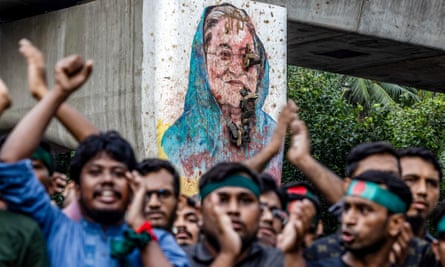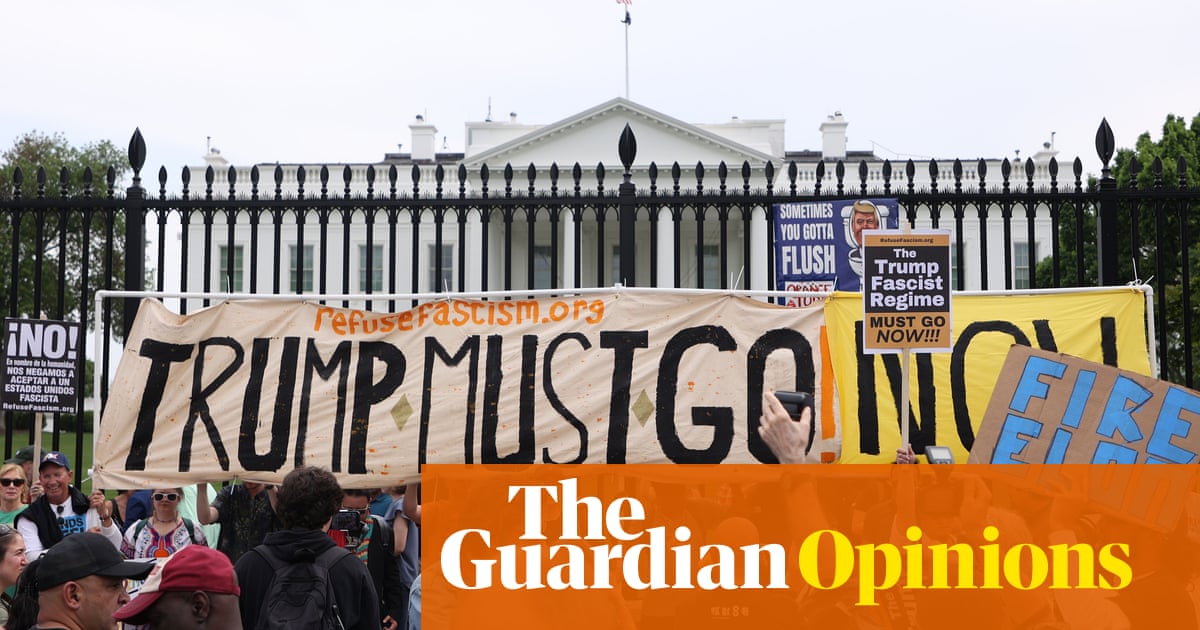It was unusual to see Muhammad Yunus, a widely respected Nobel laureate and the chief adviser of the unelected interim government of Bangladesh, taking aim at a British minister, accusing Tulip Siddiq of benefiting from “plain robbery” in his home country and calling for her to apologise. But once that happened, things moved swiftly: accusations against the beleaguered treasury minister swirled, she pulled out of an official delegation going to China, she referred herself to Laurie Magnus, the government’s adviser on ministerial standards, and finally this week she resigned from her post. (Siddiq “totally refutes” allegations of corruption.)
This month, the Financial Times reported that Siddiq was given a two-bedroom central London flat by a developer closely associated with her aunt, Sheikh Hasina, the recently ousted longtime leader of Bangladesh. Siddiq had claimed she received the property from her parents, and told Magnus that she had only recently discovered it was a gift from a Bangladeshi businessman. Until 2018, she had lived in a Hampstead flat given to her sister by another businessman with connections to Hasina’s government. She lives at present in a rented property owned by a businessman linked to the British wing of the Awami League, Hasina’s political party. Siddiq was first elected to parliament in 2015, and speaking to supporters after one victory, she singled out Bangladeshi British members of the Awami League for their steadfast backing.
Meanwhile, there was that photograph from 2013, in which she was seen with her aunt and the Russian leader, Vladimir Putin, at the signing of an agreement to build a $12bn (£9.8bn) nuclear plant in Bangladesh. Magnus accepted her explanation that she was on a social visit and a tourist, but Siddiq now faces a corruption probe in Bangladesh over that deal.
Magnus did not conclude that Siddiq had broken any rules over her homes in London, and did not question the legitimacy of the transactions. However, he did say he had limited information to go on, and that she could have been “more alive” to the reputational risks arising from her family’s ties to Bangladesh. He also suggested that the prime minister would want to consider her responsibilities. Her position now untenable, she had little choice but to step aside.
Things would have been different if Hasina were still in power. But she fled in disgrace in August last year after protests against her increasingly unpopular rule grew. Students were marching through the streets of Bangladesh’s capital, Dhaka, demanding an end to the generous quotas that gave government jobs to freedom fighters and their progeny. A nepotistic exercise, it was a privilege granted in perpetuity, which gave roles to political supporters. Hasina had ordered the police to use force, and about 1,000 students and other demonstrators were killed, many of them unarmed, sometimes shot at point-blank range. Instead of listening to the students, Hasina called them “Razakars”, a deeply pejorative term by which Bangladeshis who had supported Pakistani troops during Bangladesh’s war of liberation in 1971 are described.

Bangladesh’s freedom struggle was bloody. The country was once part of Pakistan, forming the eastern wing of the state that was carved out of India in 1947 when British colonial rule ended. Urdu became the national language of Pakistan, the home of the subcontinent’s Muslims, with the Punjabi-dominated western wing and the Bengali-speaking eastern wing separated by more than 1,000 miles of the Hindu-dominated secular republic of India. East Pakistanis wanted Bengali to be a national language, but west Pakistan resisted. Unrest grew in the 1960s. In the 1970 election, Hasina’s father, Sheikh Mujibur Rahman, and his Awami League party swept the polls, winning enough seats to govern all of Pakistan. Leaders of west Pakistan, including generals, were alarmed.
In March 1971, Pakistani troops unleashed Operation Searchlight, killing thousands of east Pakistanis and jailing leaders (including Mujib, as he was popularly known). In the nine-month war that followed, hundreds of thousands of Bengali-speaking and other east Pakistani civilians were killed and many women raped; 10 million refugees made their way to India. The Indian prime minister, Indira Gandhi, offered moral and diplomatic support at first, as well as training to the Bangladeshi guerrilla forces. But in December that year, Pakistan attacked India, which retaliated and liberated Bangladesh within two weeks. Most refugees returned to Bangladesh. Released from jail, Mujib won a thumping majority in Bangladesh’s first election.
But Mujib’s popularity unravelled after 1974, when law and order deteriorated and a famine affected many parts of Bangladesh. To reassert control, he created a one-party state and ruled by decree. In August 1975, junior officers launched a coup, and Mujib and most of his family were assassinated. Hasina and her sister Rehana (Siddiq’s mother) escaped because they were abroad.
Hasina returned from exile in 1981, and led a spirited movement to restore democracy in Bangladesh. She won the election in 1996 and became leader of a coalition government. She returned to power in 2008 – the last truly free and fair election in Bangladesh – and gradually turned authoritarian herself. While the Awami League has won three successive elections since, the principal opposition parties sat out two of those and boycotted the third soon after polls opened, once they realised the scale of intimidation and rigging.
Hasina’s rule saw a rise in disappearances and extrajudicial executions, a crackdown on the media and the internet, and arrests of dissidents, human rights defenders and journalists. While Hasina did much to rehabilitate Mujib’s reputation, her rule enraged so many that after her removal, Mujib’s historic home was attacked and burned, his statues toppled and his name erased from legacy. Attempts were made to rewrite history.
For Mujib’s denigration, Hasina bears much blame. To the rest of the world, she had presented herself as standing firm against rising religious fundamentalism, and in India’s prime minister, Narendra Modi, she found a formidable ally. While Siddiq has been vocal and active in supporting human rights causes in many parts of the world, including Syria and Gaza, she has been strangely silent on the rapidly deteriorating human rights situation in Bangladesh, insisting she is “a British MP”.
Ultimately, it was her ties with Bangladesh that undid Siddiq’s career. Under Hasina, corruption had grown on a massive scale. Bangladesh’s central bank chief, Ahsan Mansur, a former International Monetary Fund official, said as much as 2tn taka (£13.5bn) had been taken out of the country by businesses close to the Awami League, through forced bank mergers, inflated import invoices and other questionable practices. Reports say Bangladesh’s Financial Intelligence Unit has asked local banks to provide transaction details for all accounts linked to Siddiq and her family.
Political rivals have always used any change of regime in Bangladesh to settle scores by seeking revenge against their predecessors through unending lawsuits and inquiries, but the charges against Hasina (and the questions about Siddiq) are not politically motivated. Regardless of the motives of politicians making allegations, the fact is that the World Bank cancelled a loan of $1.2bn to build a bridge across the river Padma because of credible corruption allegations. And UN human rights experts strongly criticised Bangladesh over enforced disappearances and extrajudicial killings to silence human rights defenders, all during Hasina’s rule.
Politics is a ruthless business. Siddiq became part of two worlds that played by different rules. Now her family’s legacy lies tarnished in Bangladesh and Britain, and she can find comfort in neither place.
-
Salil Tripathi is the author of The Colonel Who Would Not Repent: The Bangladesh War and its Unquiet Legacy. His most recent book is The Gujaratis: A Portrait of a Community

.png) 3 months ago
32
3 months ago
32













































